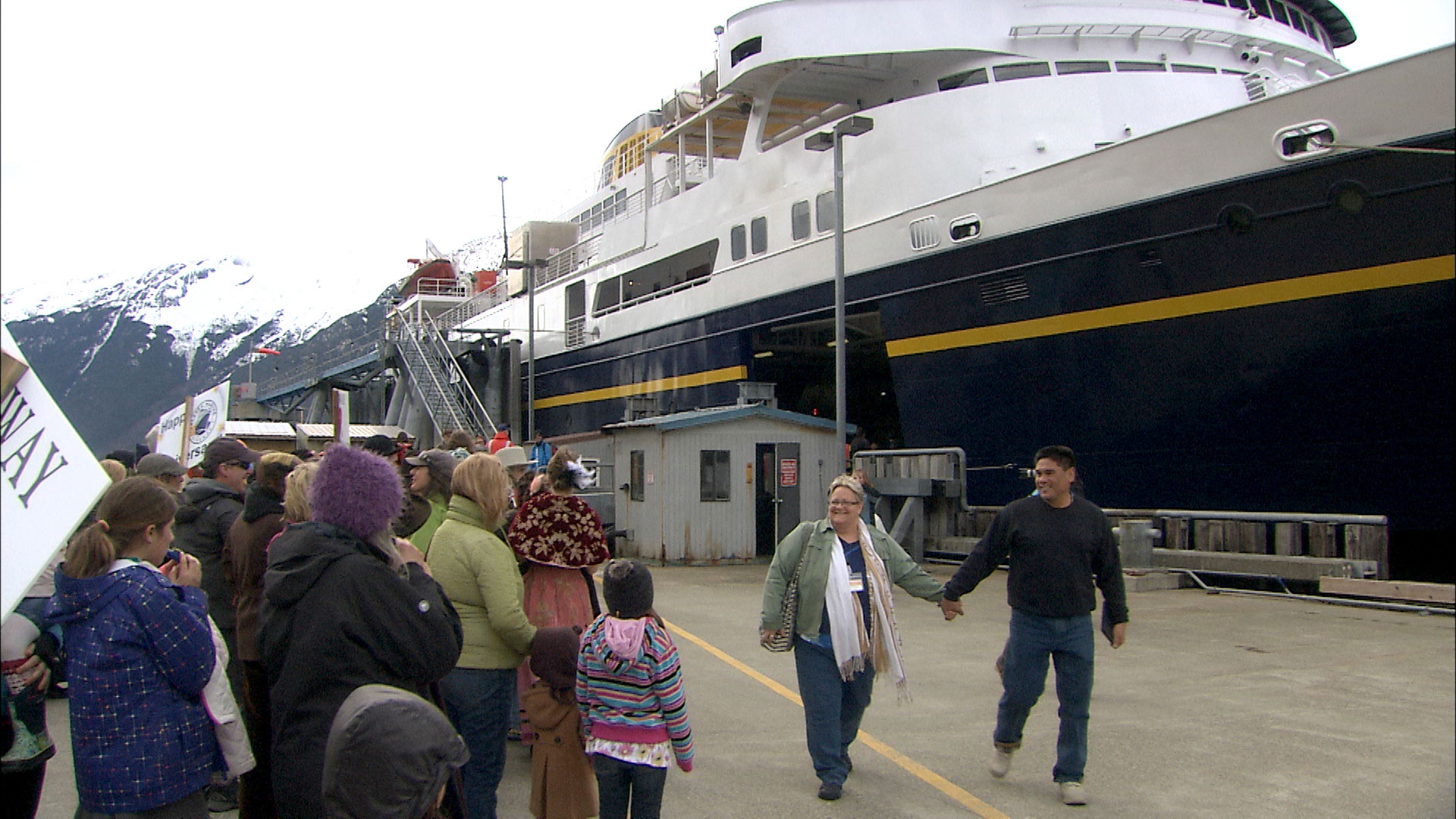
The state Department of Transportation is proposing reductions to marine highway service that would affect ferry service across Southeast and in Prince William Sound if the legislature holds the line on Gov. Bill Walker’s budget.
The proposed changes could have significant impacts in communities along the marine highway. They could also save the department about $7.5 million dollars. DOT spokesman Jeremy Woodrow says the reductions are just suggestions at this time.
“It is just a proposal or recommendation of a direction the department may go (in) if the budget were to be passed today,” Woodrow says.
The department is proposing taking the Taku and Malaspina out of service for the summers. The Northern Lynn Canal would be served by the LeConte and other mainliners with fewer port calls. Mainliner service to Sitka and other Southeast communities would also be reduced. With the Taku out from May to September, service to Prince Rupert would decrease from four days a week to two.
Fast ferries would also operate less in the summer under the proposal. They wouldn’t operate at all in the winter.
There would be reduced service in Prince William Sound and increased travel time between ports with only the Chenega serving that area under the proposal.
Juneau Democratic Rep. Sam Kito III also represents Haines and Skagway, two of the busiest ports in the marine highway system. He says in light of the revenue shortfall facing the state, the proposal to reduce ferry service isn’t surprising.
“I think it’s going to have to happen just because the department’s budget is about half marine highways and general fund budgets, and half are the rest of the functions, so roads and airports and buildings. So I think he’s being reasonable in trying to decrease service,” Kito says.
The state subsidizes the marine highway at nearly 70 percent. At that cost, Kito says the state has to find a way to provide ferry service more efficiently.
“There should be ways to look at our asset base, the number of vessels we have, our transportation network — so all of the communities to be connected together — and figure out how we can provide adequate service that is more sustainable than it is right now,” Kito says.
The proposed reductions follow other cost saving measures already implemented by the department, including closing gift shops and bars aboard ferries and a planned rate increase this summer.
